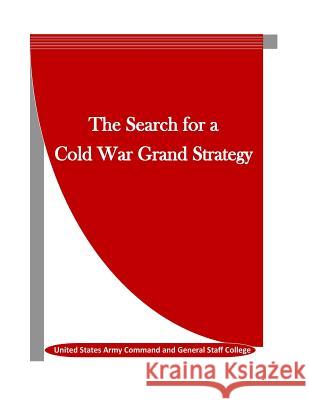The Search for a Cold War Grand Strategy » książka
The Search for a Cold War Grand Strategy
ISBN-13: 9781523455539 / Angielski / Miękka / 2016 / 96 str.
The Soviet Union's behavior following the conclusion of World War II challenged United States policy. Communist aggression around the world created a turbulent and difficult environment for the United States and Western Europe to address. Communist actions increased the difficulties for the United States which simultaneously attempted to stabilize the global economy and Western European governments. U.S. policy lacked focus and senior leaders urged President Harry S. Truman to review national policy. The political environment following the conclusion of World War II was not optimal for President Truman to request an increase in the U.S. military budget. The North Korean attack on South Korea gave impetus to an invigorated national defense policy. The attack justified an increase in defense spending in support of NSC 68 policy recommendations. President Dwight D. Eisenhower assumed responsibility for a coherent national strategy after his successful election following President Harry S. Truman. President Eisenhower campaigned on a review of the national strategy as part of his promise for a "New Look." This study focuses on the creation and evolution of National Security Council policy recommendations by two distinctly different staffing procedures. It also identifies presidential and senior leadership experiences and influences of staff organizations that created successful national security policies. Their policy actions ultimately contributed to the successful collapse of the Union of Soviet Socialist Republics and degraded communism as a legitimate form of government in the late 1980s.












